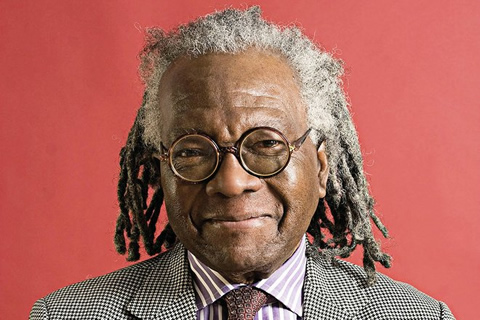Fate turned the last page in the life of Austin Clarke on June 26, when the celebrated Caribbean-Canadian novelist died of prostate cancer. But the many plot twists in his 81 years tell a compelling story about avant-garde literary feats and black rights advocacy that won’t soon be forgotten.
Born and raised in Barbados, Clarke moved to Toronto in 1955 to attend the University of Toronto. The following year he studied political science and economics at Trinity College, during which time he published poems in the Trinity University Review. Shortly after, Clarke started, but didn’t finish, a BA at University College. Years later, Clarke received an honorary degree from Trinity College and was designated one of University College’s “alumni of influence.”
For Clarke, those years in Toronto were marked by racial discrimination, and in his 2015 memoir, ’Membering, he described the city as having an “atmosphere of great physical fear.” Clarke harnessed these insights into the immigrant experience in Toronto to fuel his endeavours not only in writing, but also teaching and journalism. Early in his career, Clarke worked as a newspaper reporter in northern Ontario and at the Globe and Mail. He later joined CBC as a broadcaster, where he interviewed many black writers, artists and intellectuals.
Clarke’s first break in fiction writing came in 1964, when McClelland and Stewart published his first work, The Survivors of the Crossing, a novel about race and racism in 1961 Barbados. Over the following decades, Clarke continued exploring these themes in his many novels, short story collections, memoirs and poetry. What cemented his status as a literary force was The Polished Hoe, his 2002 novel about Barbados’ legacy of colonialism that won the Giller Prize and the Commonwealth Writers’ Prize. In 1998, Clarke was made a Member of the Order of Canada.
“Austin was among the first writers in Canada to pay attention to everyday life in Toronto and its social and cultural dynamics,” says U of T professor Rinaldo Walcott, a longtime friend of Clarke’s. “Many immigrants saw themselves in his stories, but his stories were also popular with people across race, class and culture.”







No Responses to “ Remembering Austin Clarke ”
This fine tribute to a fellow alumnus sadly marred by the racist word "black." Black is not a country, black is not a culture and black is not a language. It is best to use citizenship and geographic origin as a marker for heritage. Discard the racial undertones of yesteryear. This is the 21st century. Canadian passports don't code citizens by colour or use demeaning phrases such as "people of colour," "coloured" or "visible minorities." Yet these terms are continually used by governments at all levels, NGOs and the media -- and it is just plain wrong!
Save the colour-coding for cattle, horses and shopping "Fridays" -- and for the history books!
William M.C. Volkwijn